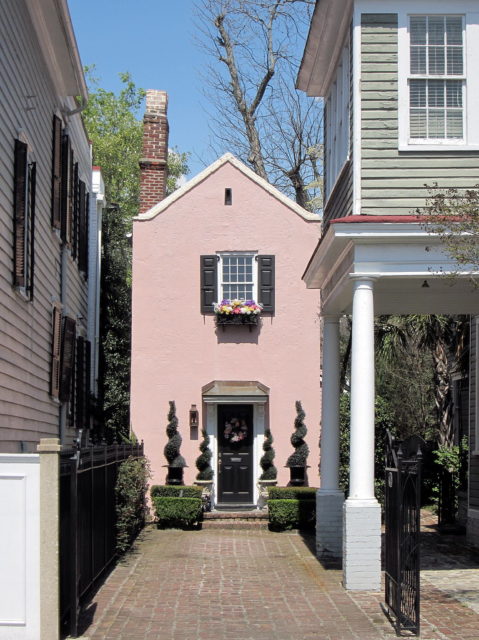Everyone seems to agree that affordable housing is a major need across North America … it certainly is in the Toronto area! In South Carolina, local politicians are doing what they can to make legal changes to encourage more affordable residences to come to market … even when the problem is at least partly caused by earlier attempts to encourage more affordable housing to come to market:

“A converted carriage house, Tradd Street, Charleston, SC” by Spencer Means is licensed under CC BY-SA 2.0
The City of Charleston is considering new legislation that would deregulate accessory dwelling units in hopes of increasing the supply of affordable housing in the city. Also known as carriage houses or mother-in-law suites, accessory dwelling units are small structures that are built in the backyards of homes, and they can be a great source of affordable housing for those in need.
The initiative, which was proposed by Councilmember Ross Appel two weeks ago, would remove red tape that is currently presenting a significant barrier for building this kind of housing. The ironic part is that the regulation which is primarily to blame for stopping the creation of these units was passed specifically to make these units more accessible.
“The city is looking at taking away a rule that requires these buildings to be affordable for 30 years,” WCSC reports, “which, Appel says, has been an obstacle for developers and homeowners.”
“We don’t want people to be artificially limited in terms of what they can charge,” Appel said. “The affordability requirement was a good-intended measure, but actually, that’s been currently in effect for the past year and a half, and we haven’t had a single accessory dwelling unit permitted since that time.”
Put simply, the affordability requirement backfired big time. Its goal was to make new accessory dwelling units more affordable, but by restricting the price people could charge it actually made them so unprofitable that people just stopped building them altogether. For all practical purposes, new accessory dwelling units might as well have been banned.
The implications are not hard to tease out. With no new accessory dwelling units to live in, people have been forced to bid up other kinds of housing, which has no doubt contributed to soaring housing prices. This is why Appel is eager to repeal this rule. He knows that building more supply is the key to bringing prices down, and he knows that regulations like this have been getting in the way of that process.
There’s a maxim in economics that this story highlights: the solution to high prices is high prices. The reasoning goes as follows. When a good like housing becomes scarce, prices naturally rise. But as prices rise, producers see an opportunity for profit and begin expanding the supply. Then, as additional supply comes to market, prices begin to fall.



